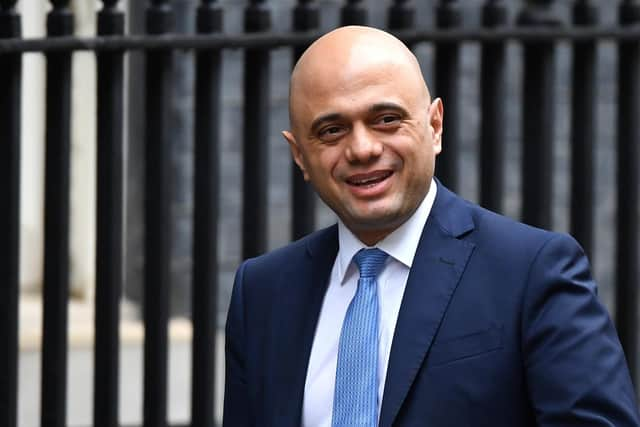Covid Scotand: Is UK's determination to bin restrictions forever really the responsible approach? – Ian Swanson
and live on Freeview channel 276
[Let us know what you think and join the conversation at the bottom of this article.]
And this seems to extend to ending the requirement to wear face coverings in shops and on public transport, making it optional instead.
Face masks are more about protecting other people than protecting ourselves, so making it a “personal choice” whether to wear them is effectively telling people they are free to disregard the safety of the fellow citizens they come close to in shops or sit next to on trains and buses.
Advertisement
Hide AdAdvertisement
Hide AdNicola Sturgeon has signalled that, despite Scotland now being the “coronavirus capital” of Europe with case numbers soaring, she is also ready to go ahead with lifting restrictions, though more cautiously, at a later date and with the wearing of face masks continuing for some time.
After 15 months of living with lockdowns, physical distancing and limited contact, everyone yearns for life to return to normal. But Covid has not gone away and numbers are increasing exponentially – fertile ground for the development of yet more variants.
Vaccinations have been a huge boon and reduced the rate of hospitalisations and deaths. But even people who have had both jags can still become ill – as broadcaster Andrew Marr has testified – and there is the risk of Long Covid, which can leave people with recurring fever, breathlessness, muscle ache, fatigue and heart damage.


It’s all very well saying we need to “learn to live with Covid” but is the UK government’s plan to bin restrictions and insist they are never coming back really the responsible approach?
Advertisement
Hide AdAdvertisement
Hide AdThe reality is that no-one knows what is going to happen with the virus.
Their "Freedom Day" rhetoric could prove dangerous – both for the country and for themselves.
Edinburgh University's global public health professor Devi Sridhar warns that insisting anything is “irreversible” has “never paid off for any politician who said that anywhere in the world during this pandemic”.
And some politicians have a habit of categorically ruling things out, only to reverse their position when circumstances change.
Advertisement
Hide AdAdvertisement
Hide AdPerhaps the most famous example was the late Ian Paisley in Northern Ireland bellowing “never, never, never” in a 1985 speech denouncing the Anglo-Irish agreement and rejecting what he termed "Dublin rule". His image was intransigence incarnate.
But in 2007 the Protestant firebrand became the province’s First Minister, with Sinn Fein's Martin McGuinness as his deputy; the two had such a good working relationship they were referred to as the “Chuckle Brothers” and a new era of co-operation with the Irish Republic began.
And Boris Johnson is no stranger to grand declarations later abandoned. In September 2019 he said he would "rather be dead in a ditch" than agree to extend Brexit, before then having to go cap in hand to Brussels to request a delay.
He has also ruled out another independence referendum as long as he is Prime Minister – we will have to see how that ends.
Advertisement
Hide AdAdvertisement
Hide AdBut all things considered, it might be wise for politicians to follow the advice, often attributed to Charles Dickens to never say never – and, in the case of Covid restrictions, never say never again.
A message from the Editor:
Thank you for reading this article. We're more reliant on your support than ever as the shift in consumer habits brought about by coronavirus impacts our advertisers.
If you haven't already, please consider supporting our trusted, fact-checked journalism by taking out a digital subscription.
Comment Guidelines
National World encourages reader discussion on our stories. User feedback, insights and back-and-forth exchanges add a rich layer of context to reporting. Please review our Community Guidelines before commenting.
